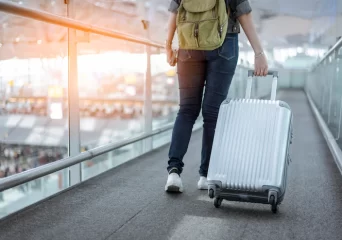
Table Of Contents
Supreme Court Of The Us Asks Whether “Ticketing For Homeless” Is Cruel And Unusual
A city within Oregon asked the Supreme Court on Tuesday to decide whether the local government might ticket homeless people sleeping on the city’s public property or whether it is a cruel and unusual punishment that violates the Constitution.
Grants Pass, a city with a population of 38,000 in southern Oregon, has said to the Supreme Court in an appeal that the prohibition on handing out tickets has created a dire situation for the homeless people within the region.
Along with affecting the officials within the city to deal with crime, fires, and the reemergence of diseases. The question of whether individuals without homes can be punished under the laws designed to regulate public camping and sleeping outside has been exuding in federal courts for years as several states and cities wrestle with increasing homelessness.
The supreme court declined to consider a similar case in 2019 after the federal appeal court in California ruled that homeless US citizens would not face any kind of criminal prosecution.
With the issue of the latest case related to the same court, the US Court of Appeals for the 9th Circuit held that cities could not issue tickets to homeless people using blankets, pillows, or means to protect themselves from the elements.
The court has also noted that the city has handed out dozens of citations each year. Sometimes with fines that have reached several hundred dollars.
The number of homeless people outnumbers the available shelter beds. In other words, homeless individuals have nowhere to shelter and sleep in the city other than on streets or parks. The court stated this. The anti-camping laws prohibit them from engaging in activities that they cannot avoid.
In a sharp disagreement, US Circuit Judge Diarmuid O’Scannlain has stated that the appeals court’s decision effectively guarantees a personal federal constitutional right for individuals to camp or sleep in public places in defiance of health, safety, and welfare laws.
Read More:









